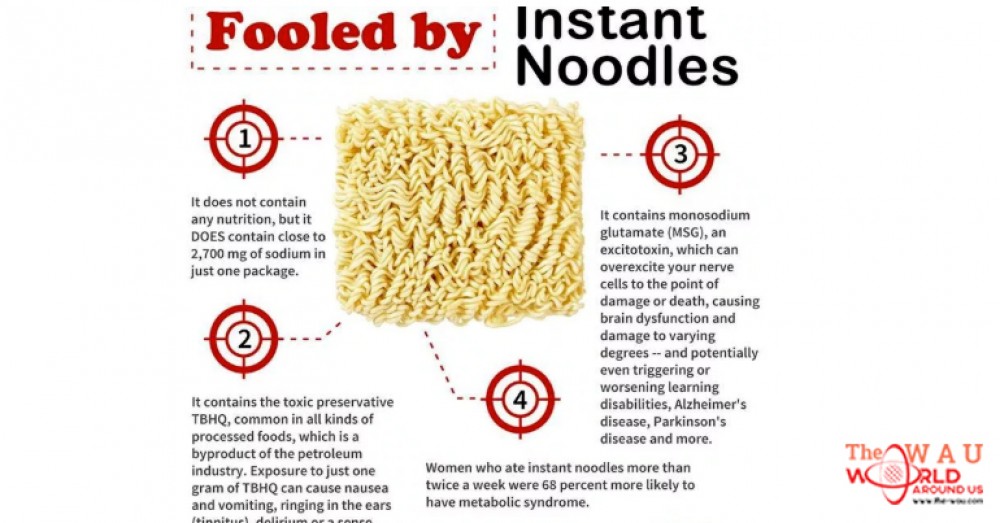The health risks of consuming excessive processed foods like instant noodles aren’t new. Health sites and medical experts have long warned of the negative effects of such foods like instant ramen noodles. Instant noodles especially have long become a staple among college going kids. Not just instant ramen noodles but most instant noodles in particular are bad for health if consumed in excess.
A recent study on ramen noodles found the popular food to increase changes in metabolism which could be linked to stroke and heart disease. The fact that ramen noodles linked to heart disease is a dangerous phenomenon where parents need to educate and discourage kids from establishing a dependency on the same.
1 The main ingredient in instant noodles that causes health problems
The main ingredient responsible for ramen noodles linked to heart disease and side effects is tertiary butyl hydroquinone or TBHQ. This is a petroleum by-product which is used as a food additive in mass produced processed foods like ramen noodles.
An experiment by a gastroenterologist used a time lapse video to see what happens in the stomach 2 hours after ramen noodles were digested. It yielded shocking results. In comparison to regular noodles , ramen noodles did not break down even after 2 hours. This leads to the presence of synthetic additives remaining longer in the stomach before being eliminated.

2 Parents should choose healthier options
The noodles in ramen are made from palm oil, wheat flour, salt and sugar. The seasoning contains artificial flavouring, mosnosodium glutamate, salt and sugar. The tastemaker with its high sodium content is what makes instant ramen noodles so addictive.
Research on instant noodles consumption conducted in South Korea which has the highest number of ramen consumers in the world showed that the risk of metabolic change increased in those who consumed an excessive amount of the product. The only way to curb the problem of excess instant noodle consumption is for parents to educate their kids on the dangers of such processed food. The fact that ramen noodles is linked to heart disease should be realised by the younger generation. Homemade pasta and homemade snacks is a better option.

Share This Post















